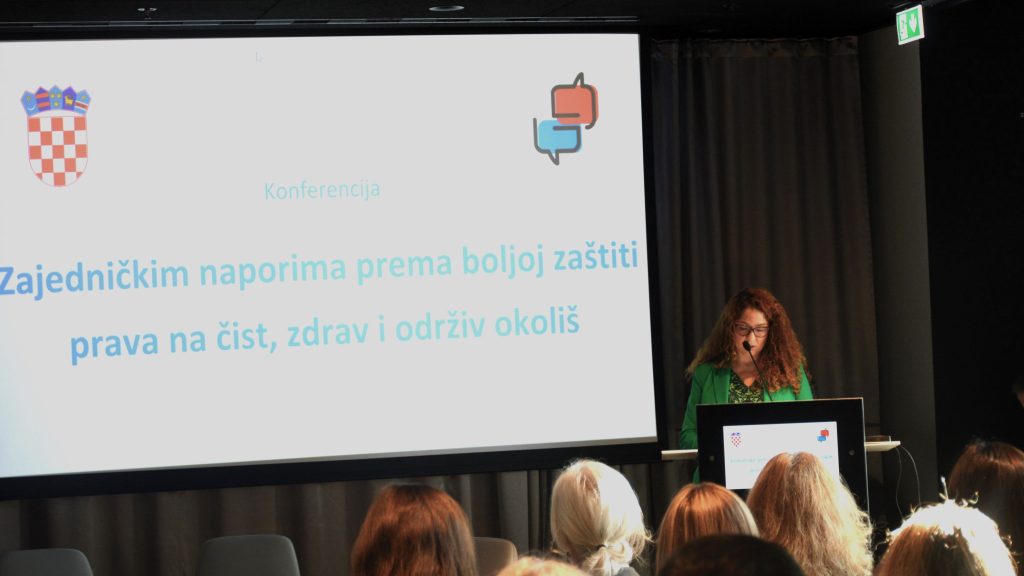For the first time, lobbying in Croatia is set to become a legally regulated activity – following a public consultation on the Draft Proposal of the Lobbying Act from 16 June to 16 July 2023, the Act is expected to be presented to the Croatian Parliament in the near future.
The adoption of this Act was also recommended by the European Commission, GRECO (Group of States against Corruption) of the Council of Europe, and the Organisation for Economic Co-operation and Development (OECD). Lobbying can contribute to better-informed decision-making by authorities and, consequently, the public, ultimately resulting in higher-quality decisions and more effective public policies.
However, it is essential that this activity is governed by a legislative framework that ensures lobbying is conducted transparently and in line with the highest ethical standards. This is necessary for the prevention and reduction of corruption risks.
With this goal in mind, and given her role in protecting the rule of law, Ombudswoman Tena Šimonović Einwalter participated in the public consultation. The Ministry of Justice and Public Administration, as the proposer, accepted a significant portion of her comments and proposals.
Accepted Comments and Proposals of the Ombudswoman
According to the report on the public consultation, the Ombudswoman’s proposal was accepted that lobbyists be required to inform the lobbied parties if they had provided them with information they believed to be accurate and complete, but subsequently discovered was not. In such cases, lobbyists will be required to provide the correct and complete information.
This obligation had not been envisaged in the initial Draft. However, during lobbying activities, a lobbyist may share information that they believe to be accurate and complete, which may not be the case, while the lobbied party may hold different or contradictory information.
It is therefore a positive development that lobbyists will be required to act upon discovering that they have shared incomplete or incorrect information, particularly in light of the principles of diligence, transparency, and integrity outlined in the Draft.
The Ombudswoman’s proposal that registration in the Lobbyists Register be a prerequisite for all lobbyists prior to commencing lobbying—regardless of whether they receive compensation for their activities—was also accepted.
The Draft initially provided for voluntary registration for individuals who do not receive compensation for their lobbying activities, which is inconsistent with the Draft’s stated objectives (greater transparency in public and political life), relevant provisions (clear and publicly accessible information on the identity and professional interests of all those seeking to influence public policy decisions), and the principles of openness, transparency, integrity, diligence, and accountability.
Moreover, the principle of lobbying transparency has been a key issue of discussion at the EU level for many years, leading to the establishment of the Joint European Transparency Register in 2011.
The acceptance of the Ombudswoman’s proposal is also aligned with GRECO’s Fifth Evaluation Round Report for Croatia, which states that “direct contacts between company representatives and government members are common, so any regulation of lobbying should explicitly include other third parties wishing to influence government decision-making, for example, by registering ‘who met with whom and about what’, increasing transparency regarding the interests represented when individuals join government working groups, or implementing other measures contributing to this aim.”
The Ministry of Justice and Public Administration also accepted the Ombudswoman’s proposal to extend the “cooling-off period” from one year to 18 months, and to apply it to unpaid lobbying as well. This refers to the period during which a former public official or civil servant is prohibited from lobbying the body in which they previously held office.
Finally, in accordance with the Ombudswoman’s proposal, it was announced that monetary fines for breaches of obligations and provisions under this Act will be increased. This is necessary to ensure that financial penalties are effective, proportionate, and dissuasive for those who violate the law.
All of the Ombudswoman’s comments on the Draft Proposal of the Lobbying Act are available in the Public Consultation Report.





